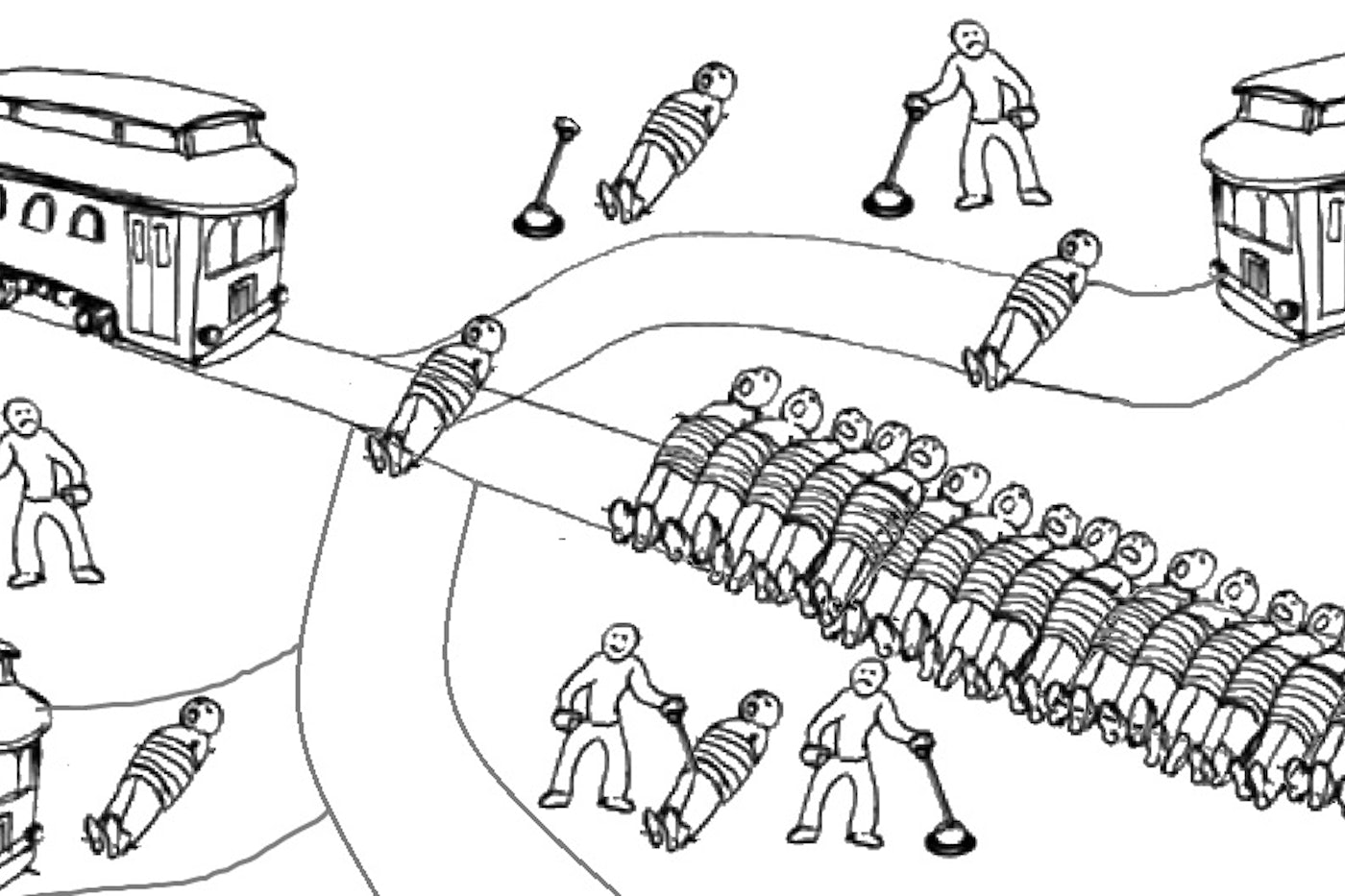There is a standard problem in moral philosophy called the 5 trolley problem which you would most likely know since you are reading this weird blog. We shall look at an interesting variant that gets us thinking even more.

Defining the original 5 trolley problem.
There is a train junction with a switch between track 1 and track 2. There are 5 men working on track 2 and one man working on track 1. They are wearing mufflers with their back turned and thus cannot hear nor see an approaching train.
Suddenly a train appears and is approaching the junction switch. The switch is currently going to send the train to track 2 and kill the 5 men. You have only two choices 'To flip the switch' or 'Do nothing'. By flipping the switch the train will go to track 1 and kill that 1 person.
The most common answer is to switch and let one person be killed instead of 5.
Now, we shall see some standard variants of this which include
- The one person is Einstein while the 5 are murderers
- The one person is your relative, the other 5 are strangers. What degree of separation will you allow the one person to die?
-What if track 1 had certain death of 1 person while track 2 had 50% chance of nobody dying and 50% chance of 3 people dying?
But we mainly focus on an interesting variant as follows.
You are in a hospital and there are 5 patients. One needs a liver, Two need kidneys, 1 needs a heart and 1 needs some random organ that can be transplanted. They are about to die and need organs urgently. At that time you see a blind man who has pledged to donate his organs walking towards a machine that will cut his head off. You have only 2 options 'Stop the blind man' thus letting all 5 die or 'Do nothing' and thus obtaining all required organs after the blind man dies resulting in saving all 5.
When I first heard this, I was super amazed at how we humans perceive different things. Even to this day I am not sure if the above two variants represent the same ideal and most probably I never will. I believe this is purely a result of us being genetically hardcoded with asymmetric thinking. This can also clearly be seen in other cases involving utility, freedom, power and choice. A simple example is as follows.
Two men turn up at your door. The first man says he will give you a half a billion dollars if you choose him. The second man says that he will toss a coin if you choose him. If coin turns up head he will give you a billion dollars and if tail he will give you nothing. You can choose only one.
Almost everyone will choose the first man despite having the same expected value. In fact most people will choose the first man if he given 0.3 billion while the second man maintains the same deal. This is simply due the utility function of people which is not linear but in fact concave. A simple calculation will also reveal the reverse if we make a small change. Now the first man offers 2$ while the second man offers 10$ with a coin flip. Most people will chose the second in the second case and first in the first case. Interestingly a zillionaire wouldn't even care between the two and would instead choose randomly This is simply because one's utility is not on the wealth gained but the marginal increase in wealth.
Similarly I propose that there is a similar phenomenon for guilt or moral satisfaction leading to a difference in the outcome of our trolley variants. Interestingly we didn't even go to the variant with 3 choices and we are already stumped.
Comments
Post a Comment